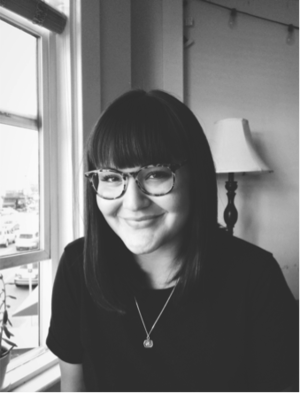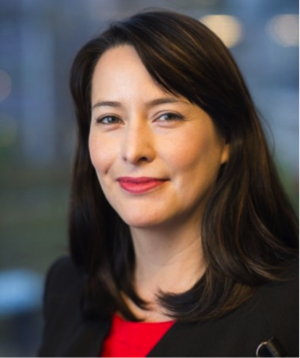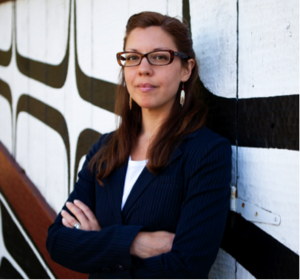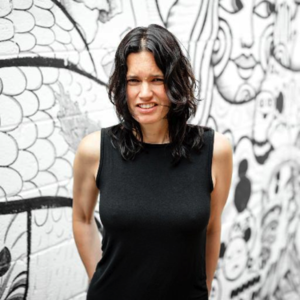GRSJ224/decoloniallove
Positionality
My name is Salia Joseph, I'm from the Skwxwú7mesh and Snuneymuxw nation's on my fathers side and am British and Jewish on my mothers. I am in my fourth and final year of the First Nations and Indigenous Studies Program where my research focus is Indigenous Feminisms and Indigenous new media. I coordinate CiTR's Indigenous radio collective, Unceded Airwaves.
Introduction:
During the recent elevation in the mainstream discussion of Murdered and Missing Indigenous Women in Canada, it has become more important then ever to further discuss and unpack what healing looks like to Indigenous women and communities themselves. This is particularly apparent as the contested call for a national enquiry gains momentum and publicity. The phrase murdered and missing has become a type of buzz word, and I find it crucial to re-ground this discussion by centering the people who are directly effected.
Decolonial love is the best term to encapsulate the healing work that resonates the most with me. It points to the heart and work of many Indigenous female authors, artists and leaders that are talking and teaching about healing and resurgence in their own communities through relationship building. Though the term itself is broad and is captured in many works, I am directly quoting this term from Anishinaabe scholar and artist, Leanne Simpson in her book Islands of Declonial Love.
I will use Simpson’s work, and the work of three other Indigenous women, Dory Nason, Sarah Hunt and Leanne Simpson explore what notions of decolonial love means to them, to their activism, and their role in community. I will then consequently explore these teachings and what they mean to me in relationship to understanding Indigenous feminism, Solidarity and decolonization. I will split up this page into five sections. I will categorize the first four sections around these authors and a theme, and then the fifth will be my own exploration of decolonial love and what it means to me.
This issue of violence against Indigenous women spans the duration of a post contact Canada and exists into the present as a product of ongoing settler colonialism in Canada.
Dory Nason (Ph.D. University of California, Berkeley) is Anishinaabe and an enrolled member of the Leech Lake Band of the Minnesota Chippewa Tribe. Her areas of research include contemporary Indigenous Feminisms and related Native women’s intellectual history and literature. At UBC, Professor Nason teaches Indigenous Literature and Criticism; Indigenous Theory and Research Methods; and Indigenous Feminisms. Dory Nason joined the First Nations and Indigenous Studies Program in August 2008. Dory comes by way of the University of California’s Ethnic Studies Department at Berkeley. Specializing in Indigenous feminism and literature, Dory holds a joint position with the UBC Department of English.[1]
Anishnaabe, and Mexican American scholar, Dory Nason, explores the power of Indigenous women’s love and also the violence that Indigenous women face in Canada in her article, https://decolonization.wordpress.com/2013/02/12/we-hold-our-hands-up-on-indigenous-womens-love-and-resistance/, written in 2013 during the context of the Idle No More movement. Nason highlights Indigenous women’s love for themselves, their communities and land and states, “these profound forms of love motivate Indigenous women everywhere to resist and protest, to teach and inspire, and to hold accountable both Indigenous and non-Indigenous allies to their responsibilities to protect the values and traditions that serve as the foundation for the survival of the land and Indigenous peoples.”[2] She also explores how the strength of this love has been a large obstacle to colonial agendas of land displacement and assimilation, and argues that this love has thus been targeted. Nason grounds her conversation and exploration of Native women’s strength in the context of love, which is a more empowering way to contextualize why Native women have been targeted by the state. It is evident that this violence is systematic, we are capable of naming it, of gathering statistics, of mourning our lost ones, but what is harder to know, is where to go from here and how to honor the dead by protecting the living. How do we move forward as nations in a good way? In a safe way, that re-centers and empowers the subordinated members of our communities? As it stands, Indigenous women fall through gaps within colonial legal frameworks that function at a state level.
Sarah Hunt is Kwagiulth (Kwakwaka’wakw) from Tsaxis, and has spent most of her life as a guest in Lekwungen territories. She is a professor in a split appointment between the First Nations and Indigenous Studies Program and Geography at UBC. Her scholarship in Indigenous and legal geographies critically takes up questions of violence, justice, self-determination and resurgence. Her writing and research emerge within the networks of community relations that have fostered her analysis as a community-based researcher, with a particular focus on issues facing women, girls, and Two-Spirit people.
Dr. Hunt received her B.A. and M.A. from the University of Victoria and her Ph.D. from Simon Fraser University. Prior to starting her position at UBC, she was Scholar-in-Residence at Vancouver Island University and postdoctoral fellow at the National Collaborating Centre for Aboriginal Health[3]
Kwakwaka’wakw scholar and activist, Sarah Hunt asks, “what does it mean if we are appealing to law for our rights when we see that the law is also a part of the problem?. . . if we look to law instead of our relationships with each other for answers, we risk replicating those same power dynamics that indigenous people have faced from the state since Canada’s formation” Here, she lays out the risks of working within the state system, and the consequences it has on our people due to its inherent limitations. She is arguing that the foundation of state law is flawed from its creation, a claim which she elaborates on by stating, “Colonial ideas of Indians that were formed into law through the Indian act were founded in the denial of our humanity as people incapable of forming our own laws. These categorizations remain the foundational terms in which indigenous peoples legal subjectivity is formed in Canada”. Hunt is one of many Indigenous scholars who critique the route of engaging with the state in order to attend to colonial issues of violence.
Leanne Simpson started as a scholar and in accordance published her book Dancing on Our Turtles Back: Stories of Nishnaabeg Re-Creation, Resurgence, and a New Emergence, which was foundational in the realm of Indigenous studies, and Indigenous feminisms. Within the book Simpson explores the ways in which cultural resurgence, as in the ways we rebuild and strengthen our own nations, manifests itself within her community. She looks at the role of art and storytelling, language and tradition to embody the strength of her people and the ways to move forward together in good ways.
Following this book, Simpson released a book called Islands of Decolonial love[4] which is an artistic embodiment of the work that she talked about in Dancing on our Turtles Back. It is a collection of short stories and poems that she produced about her identity as an Annishinaabe woman. Simpson articulates Islands of Decolonial love as spaces in time or moments when Indigenous people can feel safe, honoured and deeply loved. This love is an important focus that is key to thinking about the power of Indigenous women in this country. It is an important emphasis that is missing from main stream discourses around native women, particularly violence. These three authors give the means to think about violence, strength and most importantly decolonial love, which are all helpful to fully understand the lives of Indigenous women today in Canada.
References
- ↑ Nason, Dory, about, First Nations and Indigenous, Web
- ↑ Nason, Dory "We Hold Our Hands Up: On Indigenous Women's Love and Resurgence, Decolonization Wordpress, FEB 12, 2013, web
- ↑ Hunt, Sarah - First Nations and Indigenous Studies Website, about, web
- ↑ Simpson, Leanne, Islands of Decolonial Love, Arbeiter Ring Publishing, 2013




